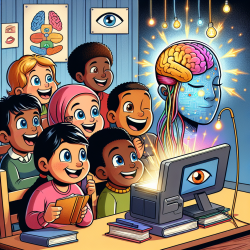Introduction
In today's educational landscape, superintendents often feel lost when trying to balance academic excellence with the emotional and social well-being of their students. The need for a supportive school culture is more critical than ever, and innovative solutions such as online therapy services are proving to be a game-changer.
The Importance of School Culture
School culture is the invisible yet palpable force that shapes the learning environment. It encompasses the beliefs, perceptions, relationships, and attitudes that influence every aspect of a school's function. A positive school culture is directly linked to improved student outcomes, including higher academic performance and better emotional well-being.
Challenges Faced by Superintendents
Superintendents are tasked with the complex role of ensuring that schools are not only centers of academic learning but also nurturing environments where children can thrive. However, challenges such as limited resources, diverse student needs, and increasing mental health concerns can make this task daunting.
The Role of Online Therapy
Online therapy services have emerged as a vital tool in addressing these challenges. By leveraging technology, schools can provide students with access to qualified therapists without the logistical and financial burdens of traditional in-person therapy. This not only broadens the reach of mental health support but also integrates seamlessly into the school culture.
Data-Driven Insights
One of the significant advantages of online therapy is the ability to collect and analyze data to inform decision-making. Superintendents can use this data to:
- Identify trends in student mental health needs.
- Allocate resources more effectively.
- Measure the impact of interventions on student outcomes.
Data-driven decisions enable superintendents to create a more responsive and supportive school culture, tailored to the specific needs of their students.
Creating Informed Outcomes
With access to comprehensive data and insights, superintendents can make informed decisions that foster a positive school culture. This includes implementing programs that support mental health, enhancing communication between staff and students, and promoting an inclusive environment where every child feels valued.
Conclusion
Online therapy services are not just a stopgap solution; they are a strategic investment in the future of education. By integrating these services into the school culture, superintendents can create environments where children are not only educated but also supported in their emotional and social development. This approach ensures that every child has the opportunity to succeed, both academically and personally.










